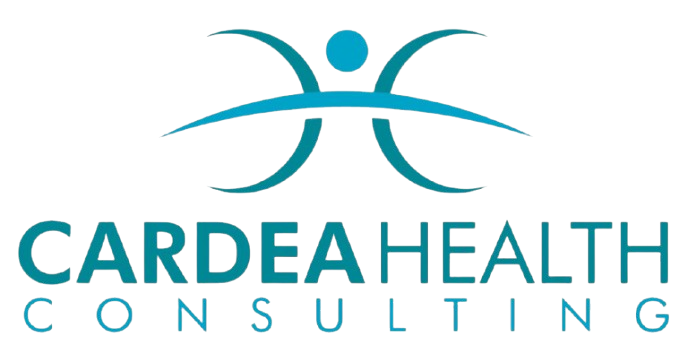Brain fog, brain health and midlife. What's really going on?
Mar 28, 2022
If you work with women in midlife and older, you may not know that one of the more alarming things going on for many of us is something referred to as “brain fog.” Many women report struggling with memory and forgetfulness, especially during the perimenopausal years. This is incredibly distressing for a lot of women in the workplace and isn’t typically discussed.
A few years ago, I attended a conference on healthy aging at which one of the speakers, a researcher who studies the impact of aging on the brain, admitted that the question she gets asked most often is, “Is this normal?” One of the biggest concerns for many women is intermittent memory loss and the feeling that their mid-life brain isn’t as sharp as it was in the past.
The researcher used this example to put memory loss in perspective. She said, “Forgetting where you put your keys, even multiple times a day, is normal – standing at a bus stop in the rain without a coat, and not knowing how you got there is not.”
If you are one of the women feeling like your brain is not as sharp as it once was, you are not alone; when surveyed, most women over 50 reported feeling that their memory and concentration had gotten worse in mid-life. It’s normal to worry that problems remembering (or concentration issues) might be the early signs of cognitive decline or even dementia. The good news is that your risk for dementia is relatively low in mid-life, and the risk doesn’t truly start to increase until you are older than 65.
What contributes to changes in memory?
Changing hormonal levels (estradiol) may be responsible for cognitive problems in mid-life women, but the complex physiology of peri and post-menopause means that there are no overarching recommendations regarding hormone replacement for brain health; instead, researchers suggest a personalized assessment between you and your doctor. [1]
We also know that when you are experiencing problems with memory and concentration, your issues may result from other factors present in your life and health. Anxiety, low mood, waking at night, stress, and other illness have all been indicated as the other likely culprits in problems with midlife concentration and memory function.
Also, women who drink alcohol appear to have increased memory and concentration problems, and it seems that the more you drink, the more severe the problems. Conversely, being employed and regularly exercising seems to provide a protective effect for concentration (but not forgetfulness).[2]
Cognitive problems that result from lifestyle combined with the multiple stressors at mid-life mean that our memory issues are usually not something more sinister. It also seems that many of these issues feed one another (e.g., problems with sleep can lead to anxiety, and anxiety can lead to memory issues).
How can we get a handle on this complex bundle of stressors and protect our brain health?
Here are some recommendations from the research:
1. Get regular exercise. Let’s face it, being regularly active is the single most important prevention and treatment tool that you can use from this point forward. Period. We know that people who exercise have a lower risk for many chronic diseases, but they also have better brain health in aging. Exercise also helps with the management of symptoms of anxiety and stress.
2. Keep your blood pressure, blood sugar, and cholesterol in check. These things may seem obvious, but many women aren’t monitoring these important measurements. Know your numbers and try to keep them regulated with the help of your doctor.
3. Throw out the supplements and concentrate on a healthy diet. Currently, there is no scientific evidence that any supplement or vitamin pill has much impact on improving cognitive function. Researchers do recommend maintaining an overall healthy diet for better brain health.
4. Moderate alcohol. What does moderate drinking mean exactly? According to “safe-drinking” guidelines in most countries, women should have no more than two drinks on most days (five ounces of wine, one and a half ounces of liquor, or one 12-ounce beer), and no more than ten drinks per week. Keep in mind that these guidelines are designed to minimize harm; there isn’t any clearly established health benefit from alcohol for women, and regular drinking poses a cancer and heart disease risk.
5. Make better sleep a mission. Easier said than done, right? Midlife provides many of us with very fractured sleep. You can try some small changes that I wrote about in my last newsletter.
6. See your doctor. If you’re experiencing symptoms of anxiety, low mood, or memory loss, make sure you see your doctor to rule out an underlying condition.
7. Practice relaxation: Implementing a regular program of relaxation practice improves your “relaxation muscle.” If you practice relaxation strategies every day, you will become better at relaxing on command. Try starting with just 10 minutes a day.
8. Say yes to social connections. One of the most protective things we can do for our brain and overall health is maintaining social connections. Sometimes it’s easy to let relationships fall away when we’re busy at work, but the health benefits of a supportive social network really hold up in the research.
9. Become relentlessly self-compassionate. This one is tough for many women, but it’s so important. We need to give ourselves permission for feeling crappy, not loving every moment of our experience, and not always being at our best.
Caring for an aging brain, like the body, doesn’t require any special products – it takes movement, sleep, good food, friends, and self-care. All of the things that make your body healthier also have a positive effect on your brain.
[1] Jaff, N. G., & Maki, P. M. (2021). Scientific insights into brain fog during the menopausal transition. Climacteric, 24(4), 317–318. https://doi.org/10.1080/13697137.2021.1942700
[2] Mitchell, E. S., & Woods, N. F. (2011). Cognitive symptoms during the menopausal transition and early postmenopause. Climacteric, 14(2), 252–261.
Get Your Free Copy of Managing in Midlife
Discover how to better support, engage, and retain midlife and older women in the workplace. This insightful whitepaper will help you build a more age-inclusive organization—and foster a culture where all generations thrive.
Plus, stay updated with the latest news, blog posts, and insights from Cardea.
We hate SPAM. We will never sell your information, for any reason.

